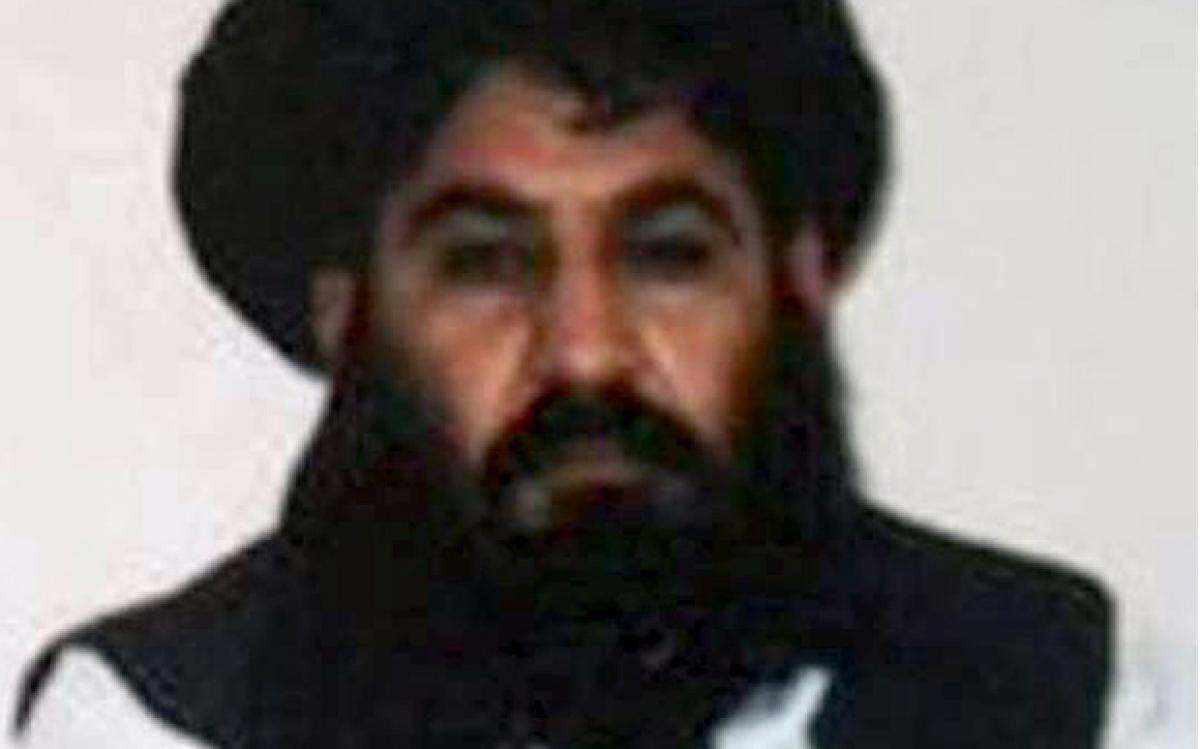Live
- AAP Announces Final Candidate List For 2025 Delhi Assembly Elections, Kejriwal To Contest From New Delhi
- Bangladesh unrest has delayed execution of some vital projects: Tripura CM
- PIL in SC seeks direction to designate BMC as sole planning, sanctioning authority for Mumbai
- 3rd Test: Centuries from Head, Smith help dominant Australia feast on listless India
- AAP final list of 38 names in Delhi: Kejriwal, CM Atishi retain seats
- Tributes Paid to Sardar Vallabhbhai Patel on His Death Anniversary at CM Revanth Reddy's Residence
- In just one year, Bhajanlal govt wins hearts of people
- CM Chandrababu announces establishment of Potti Sriramulu Telugu University
- Sutume, Kissa win World 25K Kolkata; India's Gulveer makes course record
- US accounts for 18 per cent of Indian exports in FY24
Just In

Mullah Akhtar Mansour, the former Taliban leader, who was confirmed killed in a U.S. drone strike in Balochistan on Saturday, May 21, was living under the protection of Pakistan\'s intelligence agency, the Inter-Services Intelligence (ISI).
Mullah Akhtar Mansour, the former Taliban leader, who was confirmed killed in a U.S. drone strike in Balochistan on Saturday, May 21, was living under the protection of Pakistan's intelligence agency, the Inter-Services Intelligence (ISI).
According to reports based on interviews with officials, and present and former colleagues, Mansour was a wealthy and well-travelled businessman who had homes in Dubai and Pakistan. His home in the Pakistan city of Quetta, in particular, was said to have been well protected by the ISI.
The killing of Mansour follows the similar elimination on Pakistani soil of Al Qaeda leader Osama bin Laden (May 2, 2011). Taliban leader Mullah Mohammed Omar lived and died in Quetta on April 23, 2013, and another Al Qaeda leader Khalid Sheikh Mohammed, who is awaiting prosecution on charges of terrorism and conspiracy, was captured on March 1, 2003 in Rawalpindi.
This shocking revelation of Mullah Mansour having a home in the UAE, which serves as a base for several Western military outfits and intelligence agencies, and also having a home in Pakistan that was under the ISI's protection, has led to questions being asked in the West as to how every militant leader wanted by them, is caught or eliminated on Pakistani soil.
What is even more alarming is that reports quote senior Afghan intelligence officials, as saying that Mansour was known to have taken flights in and out of Pakistan repeatedly before his elimination in a border area of Balochistan five days ago.
A wily, brutal and non-ideological operator, Mansour, according to a Geo TV report travelled from Karachi's Jinnah International Airport to Dubai nine times and visited Bahrain once.
The Pakistani news channel claims that on March 12, 2006, Mansour arrived in Karachi from Dubai on a chartered plane, and returned to Dubai in similar fashion on August 23 of the same year. He returned thereafter on October 4, 2006.
He travelled between Pakistan and Dubai in 2007 (once); 2008 (twice), 2009 (once); 2010 (twice, including one to Bahrain) and 2012 (once). All of these travels between Pakistan and the Middle East have been verified by photographs taken in airport complexes and at immigration counters.
Geo TV also makes a mention of Mansour being issued multiple entry visas to visit Iran twice in March and September 2015. He also travelled to that country between January and May 2016, reportedly using the alias of Wali Muhammad.
"Killing of another most wanted terrorist leader in Pakistan shows terrorists continue to use Pakistani soil as a safe haven for their activities. The policy of differentiation between the good, bad and ugly Taliban is intact despite commitments under the NAP (National Action Plan), the dailyO web site quotes senior vice president of the Awami National Party, Bushra Gohar, as saying.
Gohar is further quoted, as asking, "Why was Mullah Mansour travelling on a Pakistani passport? Who issued it? How could he easily travel around?"
"The killing of yet another Taliban leader inside Pakistan shows there is no change in the self-destructive strategic depth policy," Gohar adds, and calls for a joint session of parliament to deliberate seriously on the matter, besides on issues of national defence and foreign policy.
It is clear as daylight that Mullah Mansour was not a fugitive in Pakistan, nor was he in hiding, and that Pakistan saw him as a strategic asset, and therefore chose to leave him alone.
His killing last Saturday proves that the so-called "Quetta Shura" is active in Balochistan and that the Taliban is strengthening itself in that region.

© 2024 Hyderabad Media House Limited/The Hans India. All rights reserved. Powered by hocalwire.com







